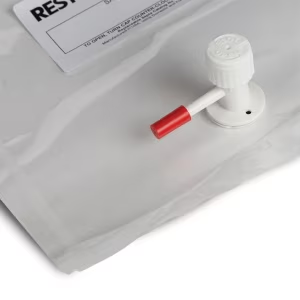Technical specifications
Gas sampling bags
These are basically specialized pouches for collecting air samples in the field.
- Purpose: They are a simple and budget-friendly way to collect "whole-air" samples, from very low to moderate levels of chemicals, including volatile organic compounds (VOCs) and permanent gases.
- How to choose a bag: The best bag depends on what kind of gas you are testing for.
- Tedlar bags: Good for many VOCs and gases, especially at low levels.
- ALTEF bags: A cleaner version of Tedlar bags with fewer trace chemicals, making them better for very sensitive testing of VOCs.
- Multi-layer foil bags: Best for permanent gases like methane and carbon dioxide, as the foil layers prevent them from escaping. They are not recommended for very low-level VOCs.
- Use: They are intended for one-time use and for short-term storage (about 24–48 hours).
Accessories
These are the tools needed to collect the gas sample.
- Valves: The bags have built-in valves to connect tubes and seal the sample.
- Syringe port: A small hole on the valve with a replaceable rubber seal (septum) allows a lab technician to extract a sample with a syringe.
- Vacuum bag sampler: This device pulls the air into the bag by creating a vacuum around it, which prevents the sample from being contaminated by a pump.
- Flow controllers: These are used with sampling canisters (a more durable alternative to bags) to control how fast the air is drawn in.
- Canisters: Restek offers specialized TO-Can and SilcoCan metal canisters for more critical or long-term air sampling needs.
